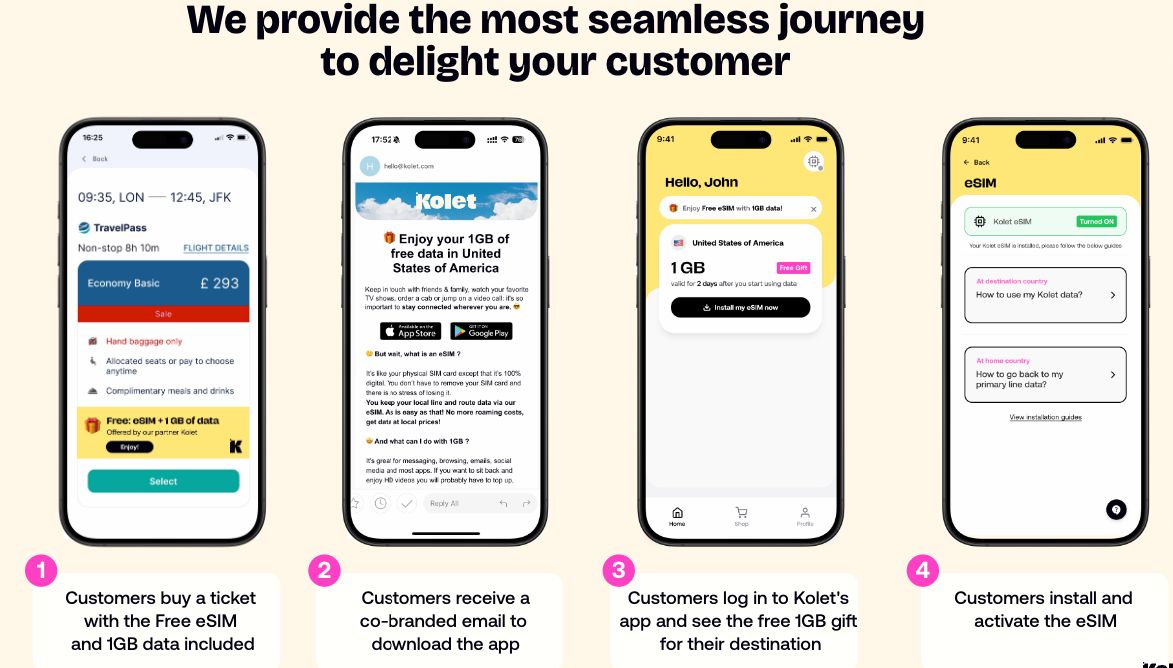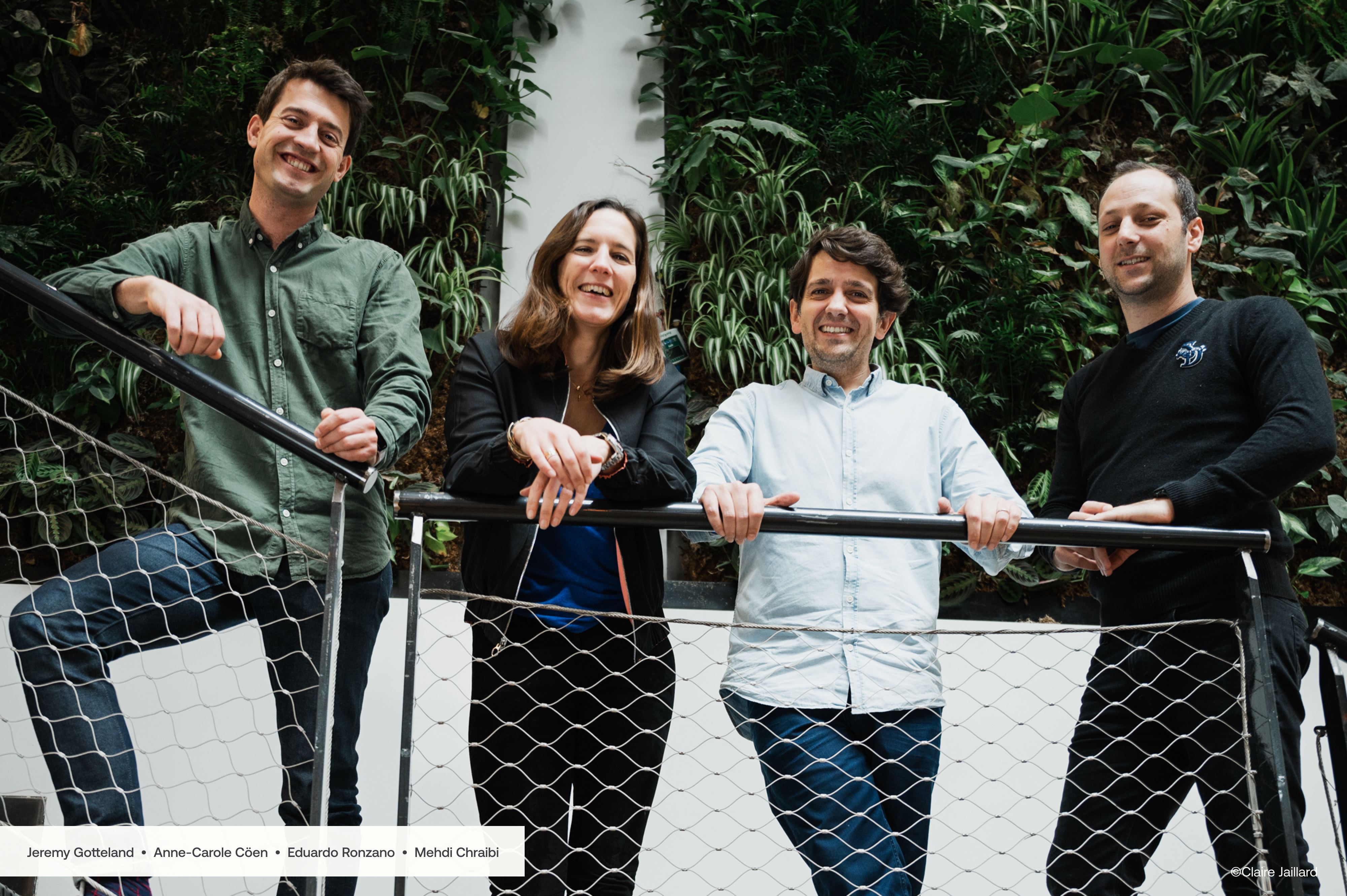Kolet is a new French startup created by four experienced co-founders in the French tech ecosystem who want to make it easier to stay connected when you travel. The company has crafted an interesting distribution strategy for travel eSIM cards and simplified the experience, as eSIM remains a confusing technology for most people.
Chances are your smartphone in your pocket supports virtual eSIM cards. For instance, they’ve been the default option for iPhones sold in the U.S. for a few years. That’s why many companies have been taking advantage of that feature to sell temporary eSIM cards with a foreign subscription plan to save on roaming fees.
A few years ago, you would have to go to a phone shop when you land and buy a physical SIM card. Thanks to eSIM, the experience is much better — or at least on paper because the eSIM industry is a bit confusing.
For instance, if you’re traveling to Argentina, you might search for the best option for a travel eSIM before heading to the airport. There are comparison websites like eSIMDB that help you compare plans. But there are so many options that it can be a bit hard to pick an eSIM provider based on a table like this one from eSIMDB:

Image Credits: eSIMDB
After picking a provider, you usually have to download an app, create an account, pay for the travel plan and add the eSIM to your phone. As an eSIM provider, you can either appear as the cheapest option on comparison websites, or differentiate yourself from this crowded market with a different distribution strategy and user experience.
That’s exactly what Kolet plans to do as the company is going to partner with other companies in the travel industry so they can promote Kolet on their own services. When you book a hotel room or a flight, you usually receive a confirmation email. In that email, partners will tell you that you can get a Kolet eSIM with a free trial with a 1GB data plan for the first two days of travel.
“Our bet is that this industry holds will be key when it comes to democratizing eSIMs because the first thing we do when we travel is either book our flight or our hotel, Airbnb,” Kolet co-founder and CEO Eduardo Ronzano told me.
Ronzano previously founded KelDoc, an online calendar and booking solution for hospitals. He then became an important figure in the angel investment scene in Paris, participating in dozens of pre-seed or seed investments, as you can see on his LinkedIn profile.
After installing Kolet’s eSIM, you can top up your plan in the app — plans start at €3.99 for 1GB in Europe with a 30-day validity period. The startup has some revenue sharing agreements with partners. Kolet’s first travel partners are professional travel agency Resaneo and air ticket booking platform Ulysse.
“What’s also special is that we’re in the process of creating our own eSIM, which gives us the ability to have a single eSIM for every country in the world. So you don’t have to reinstall a new eSIM every time you go to a new country,” Ronzano said.

Image Credits: Kolet
Ronzano is joined by Anne-Carole Cöen, who acts as the chief marketing officer for Kolet. She held the same position at French unicorn Swile, food delivery company Frichti and ride-sharing service FreeNow (formerly known as Chauffeur Privé and Kapten).
Kolet’s chief technology officer Jérémy Gotteland was a co-founder at Cajoo, the short-lived quick-delivery service that was acquired by its German rival Flink. Finally, the company’s chief operating officer Mehdi Chraibi previously worked at Millicom and Orange.
The company has already raised $5.5 million (€5 million) from VC funds Daphni and 9900 Capital. It has also asked some travel industry experts to become advisers for the startup.
The market opportunity is quite clear for Kolet. The company isn’t just competing with other eSIM providers, as many people don’t even know that they can get an eSIM when they travel. By partnering with travel companies, these partners can spread the word for Kolet and grow the startup’s user base.

Image Credits: Kolet
